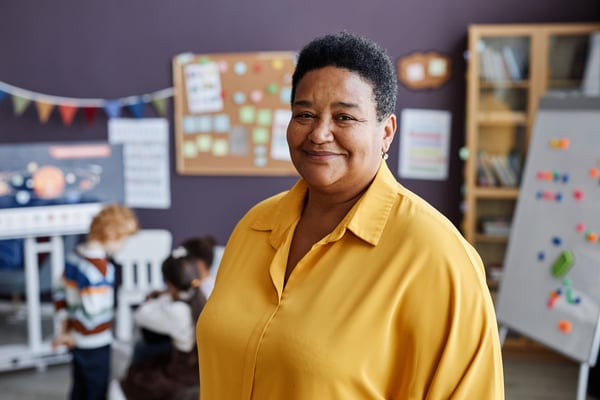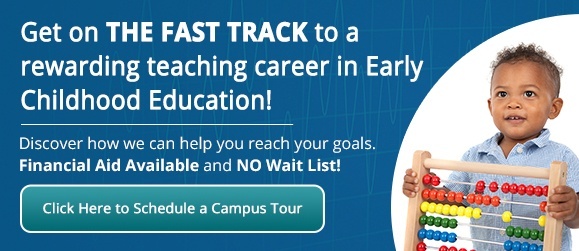The Role of Educators in Early Childhood Social Emotional Learning
Posted On Mar 8, 2024
The formative years of early childhood are pivotal for laying the groundwork for children's healthy social and emotional development. This development not only shapes their ability to form meaningful relationships but also enhances their overall engagement in school and fosters numerous other benefits. However, these skills do not blossom in isolation; they require nurturing and guidance, particularly from early childhood educators.

Early childhood educators are the cornerstone in fostering social and emotional growth in children. Understanding the profound impact they wield in shaping a child's social development sheds light on the significance of their role. Delving deeper into social and emotional development dynamics in early childhood education unveils the transformative influence educators wield.
Early childhood teachers play a crucial role in the holistic development of young learners, offering a multitude of benefits that extend far beyond the confines of traditional academic instruction. Here are some ways in which early childhood educators benefit students:
- Foundational Learning: Early childhood teacher can provide a strong foundation for future academic success by introducing essential concepts and skills in areas such as literacy, numeracy, and cognitive development. They create stimulating learning environments that foster curiosity and a love for learning.
- Social and Emotional Development: Educators cultivate social and emotional intelligence by creating a supportive classroom environment where children learn to express their emotions, resolve conflicts, and develop empathy and cooperation skills through interactions with peers and adults.
- Language and Communication Skills: Through storytelling, conversations, and language-rich activities, educators facilitate the development of language and communication skills, laying the groundwork for effective verbal and nonverbal communication.
- Fine and Gross Motor Skills: Early childhood educators design developmentally appropriate activities that promote the refinement of fine motor skills (such as hand-eye coordination and pencil grip) and gross motor skills (such as running, jumping, and balance), enhancing children's physical abilities and overall well-being.
- Creativity and Imagination: Educators encourage creative expression and imaginative play, fostering children's artistic talents, critical thinking abilities, and problem-solving skills. They provide opportunities for exploration and experimentation, sparking curiosity and innovation.
- Cultural and Global Awareness: By incorporating diverse perspectives, multicultural resources, and global themes into the curriculum, educators promote cultural competence and awareness, helping children develop respect for diversity and an appreciation for different cultures and traditions.
- Critical Thinking and Inquiry Skills: Educators encourage curiosity and inquiry-based learning, challenging children to ask questions, investigate phenomena, and make connections between concepts. They promote critical thinking skills by encouraging analysis, evaluation, and reflection.
- Self-Regulation and Executive Functioning: Through structured routines, consistent expectations, and modeling of self-regulatory behaviors, educators support the development of executive functioning skills, such as impulse control, attentional focus, and task persistence.
- Parental Engagement: Educators establish strong partnerships with families, involving parents in their child's learning journey through regular communication, parent workshops, and collaborative activities. This partnership enhances parental involvement in education and fosters a supportive home-learning environment.
The Importance of Socialization in Early Childhood
Socialization during the formative years lays the foundation for children's mental well-being and emotional resilience. Mastering social skills equips children with the tools to navigate interpersonal interactions, fostering the cultivation of meaningful friendships and bolstering their emotional resilience. Socially adept children exhibit a more positive attitude towards learning, actively participate in classroom activities, and adeptly follow instructions.
Conversely, children who lack socialization skills often face hurdles in forging friendships, struggle to engage in academic tasks, and may experience a decline in their self-esteem. This deficiency in socialization can manifest in behavioral issues and academic underperformance, further exacerbating challenges both in school and at home.
Supporting Social and Emotional Development
Early childhood education is a fertile ground for nurturing children's social and emotional development. It encompasses facilitating healthy relationships, emotional regulation, and cultivating a curiosity-driven learning environment. While some of this development occurs within familial and extracurricular settings, the structured environment of early childhood education significantly contributes to this journey.
Teachers as Architects of Social Development
Early childhood educators orchestrate myriad opportunities for children to flourish socially and emotionally. Through daily interactions, purposeful activities, and tailored lessons on emotional intelligence, educators lay the groundwork for holistic development. Beyond the classroom, educators serve as astute observers, identifying potential barriers impeding a child's social and emotional growth, such as mental health concerns, and liaising with parents to ensure access to appropriate support systems.
Navigating Social Development Milestones
Social development in early childhood is punctuated by a series of developmental milestones, albeit at varying paces for each child. From infancy to early elementary years, children traverse a spectrum of emotional and social growth, marked by distinctive behaviors and achievements. Early childhood educators play a pivotal role in recognizing and nurturing these milestones, bridging any gaps through proactive engagement with parents and access to tailored resources.
Fostering Social Growth: Educator Strategies
Early childhood educators deploy a repertoire of strategies to foster social and emotional growth in children. These encompass consistent displays of warmth and affection, fostering respect for individual differences, modeling desired behaviors, offering real-time praise and behavior cues, nurturing emotional literacy through discussions on emotions, providing ample time for unstructured play, and leveraging storytelling as a conduit for exploring complex emotions and social dynamics.
Early childhood educators serve as catalysts for transformative social and emotional growth in children, laying the groundwork for a future generation equipped with resilience, empathy, and a thirst for lifelong learning. Through their unwavering dedication and innovative pedagogical approaches, educators cultivate environments where every child can thrive socially, emotionally, and academically.
Recent Posts
- How Accessibility to Faculty Enhances ECE Degree Program
- Early Childhood Education Courses Lead to Great Teaching Careers
- Insights for Effective Preschool Teaching
- Online vs. In-Person Medical Assistant Training: Which Is Right for You?
- Preschool Teachers Provide Hands-On Learning for Future Innovators
Categories
- Flexible Class Schedule
- Early Childhood Education
- Clinical Medical Assistant
- Medical Assistant
- Accredited
- Medical Assistant Program Toledo, OH.
- MA Program
- ECE
- preschool teacher
- CMA
- Administrative Medical Assistant
- Practical Nursing
- Nursing School
- Nursing
- Early Childhood Education Degree
- LPN to RN
- Certified Medical Assistant
- Early Childhood Educator
- Become a Teacher
- Nursing Career
- RN
- Childcare Teacher
- Nursing School Toledo
- Practical Nurses
- Childcare Director
- Nursing Education
- Registered Nurse
- LPN
- Toledo Ohio Nursing School
- Teaching Degree
- Become a Nurse in 12 Months
- Nursing Career Opportunities
- Nursing School Preparation
- Practical Nursing Jobs
- Medical Coding and Billing
- DayCare Teacher
- Nursing Salaries
- Nursing School Costs
- PN to RN
- Career Training
- Nursing School Tuition
- Nursing School Financial Aid
- Phlebotomist Technician
- Practical Nurse Salaries
- EKG Technician
- nurse burnout
- #nursesunite
- Insider
- Phlebotomy Technician Salary
- Uncategorized
- resume
Contact us
For News, Resources, and Conversations:
Get your FREE 2022 Athena Career Academy Program Guide
The best way to get to know Athena Career Academy is to see what we offer. Download our program guide to learn more. Take the fast track to your future today!
An exciting career can be yours in just one year!
Discover how Athena Career Academy can help you reach your medical career goals fast.
Accrediting Agencies
Athena Career Academy is accredited by the Commission of the Council on Occupational Education. The school is registered with the Ohio Board of Career Colleges and Schools; State of Ohio – School Registration Number – 10-09-1943T and operates under the authority of the Ohio Board of Nursing. Please contact the Student Operations Manager for more information.



